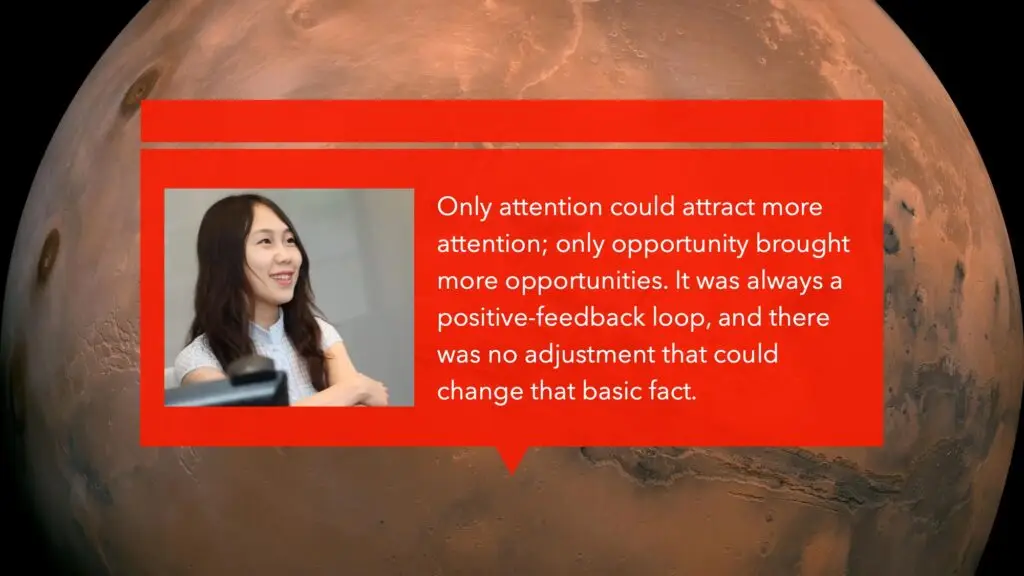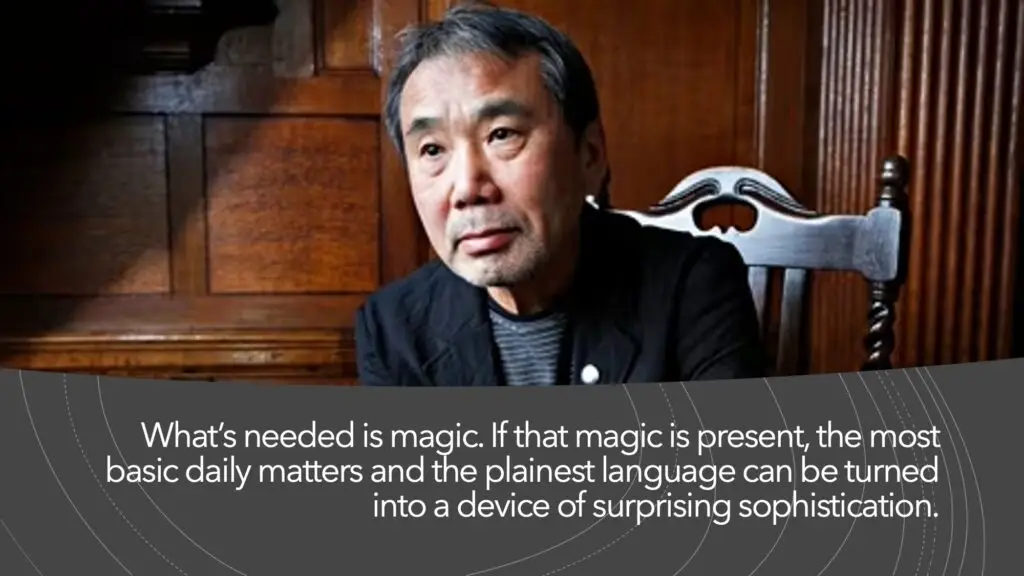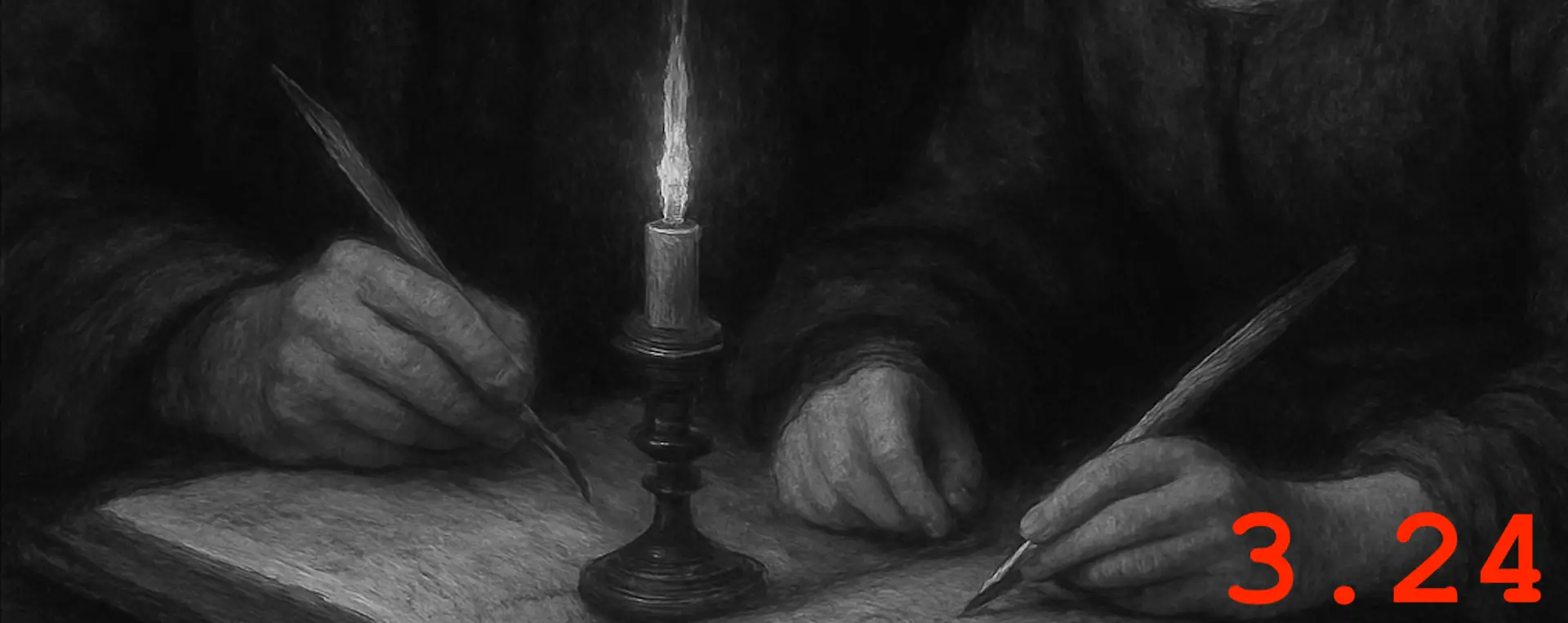Thought leadership should be fun, fast, and fearless. You tap into excitement about new ideas and advocate for something better. That’s the mindset behind The Idea Sled. Projects glide forward gracefully. It’s the momentum of commitment. This newsletter shows you how.
A novel whose conflict centers on conflicting economic theories about intellectual property sounds like an impossible premise. But there it is—Hao Jingfang’s Vagabonds (translated by Ken Liu) is a philosophical page-turner.
For those of us who make a living by developing and sharing ideas, it provokes many complex questions.

In the late 22nd century, a hundred years after the Martian war of independence, a group of teens are sent to Earth as delegates from Mars. After they return home, they struggle with the differences between the two worlds.
On Mars, colonists organize within collaborative working groups and share ideas freely in a central archive for the benefit of the community. “For them, the central archive was an ideal that represented truth and communication. Knowledge was the common wealth of all humanity, and everyone had the right to approach and pick from that treasure trove, like the right to freedom and existence. They argued that only by mutual understanding could they guarantee the coexistence of all faiths, to prevent cycles of slaughter, and the central archive was the best protector of the freedom of faith and conscience by allowing each to express their true beliefs without having to compromise by the need to make a living.”
But as Hao describes it, “The Earth of the twenty-second century was a world dominated by media, which became the pillar of the world economy. Manufactured images and the personalized web altered social structure and changed the relationship between the individual and the world. As the economy based on physical goods was devalued, trade in IP saved the world. You are the web. This was the heart of the IP economy. Everyone contributed their knowledge, and the globe was interconnected into a web so that endless commercial opportunities could be born from the exchange of knowledge. In this web of commerce, even a single sentence or a stray thought could turn into a whole array of products. Trade on this web of knowledge was a revolution, a spring without a source, a business that had effectively zero cost and nearly infinite returns.”
Yet, compared to Earth’s culture, the realities of the Martian model start to show through the cracks. The culture seems restrictive and authoritarian. The best ideas don’t always win when confronted with people’s efforts to jockey for influence and authority.
There’s no definitive answer. As one character cynically concludes, “Any lifestyle or system is going to have flaws, unfairness, prejudices. The solution isn’t to change the system. In the pursuit of perfection, humans have tried all kinds of systems, all of which have unfairness. The only difference is how those who benefit choose to sing their world’s praises. The real problem is human nature. If a man oppresses others, he will do so no matter what kind of system is in place. What’s the point of hoping for change? There is no hope. The problems of human nature can be changed only through human nature, but there is no such solution.”
Speculative fiction that is a novel of ideas about the circulation of ideas, but at the same time, compellingly plotted out. You want to know what’s going to happen next. The work offers insights into how the economics of ideas affect innovation in culture at large and explores the psychology of how the way we value and share ideas influences motivation and the sense of belonging.

Thought leaders tend to neglect the creative side of thought leadership. It’s business, not art. It’s just marketing content.
But thought leaders who embrace the role typically have a more expansive view of what they do. They are sharing their passion for their industry or domain. They care deeply about—even love—the work that they do.
It’s helpful for those broad-minded thought leaders to consider creative practices from other areas, such as fiction. Like novels, compelling thought leadership has a beginning, middle, and end. It has tension and turning points.

Japanese novelist Haruki Murakami’s Novelist as Vocation, a collection of essays and speeches on the craft of writing, includes many moments of creative inspiration for thought leaders.
A few highlights:
- “It is my belief that a rich, spontaneous joy lies at the root of all creative expression. What is originality, after all, but the shape that results from the natural impulse to communicate to others that feeling of freedom, that unconstrained joy?
- “I think chaos exists in everyone’s minds. Chaos is in my mind, and in yours as well. It’s not the sort of thing, though, that in daily life needs to be given form and openly shown to others. Not something you brag about, saying, “Hey, get a load of how huge the chaos is inside me,” or anything. If you want to come face-to-face with the chaos inside you, then be silent and descend, alone, to the depths of your consciousness. The chaos we need to face, the real chaos that’s worth coming face-to-face with, is found precisely there. It’s hiding right there, at your very feet.”
- “Human intelligence, or perhaps common sense, necessitates different approaches for different purposes. Society runs smoothly and, in a good sense, efficiently only when diverse systems of thought and world views unite. In a word, the system becomes more refined and sophisticated.”
- “All creative activity is, to some extent, done partly with the intention to rectify or fix yourself. In other words, by relativizing yourself, by adapting your soul to a form that’s different from what it is now, you can resolve—or sublimate—the contradictions, rifts, and distortions that inevitably crop up in the process of being alive.”
Note: Many of the links above are affiliate links. I’m using them in lieu of paid subscription tiers or digital tip jars. Seems like a much more graceful way to generate financial support while sharing more thinking and writing that can guide thought leadership.




